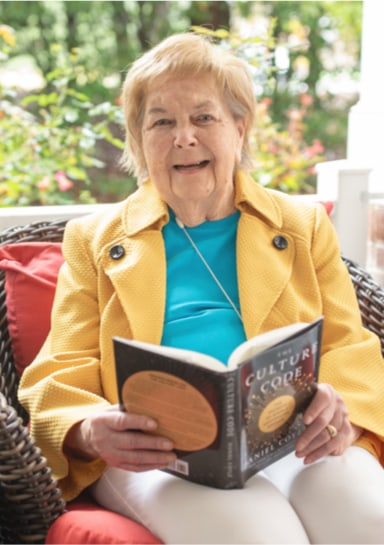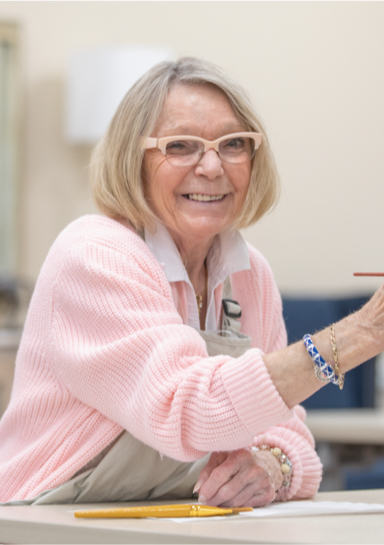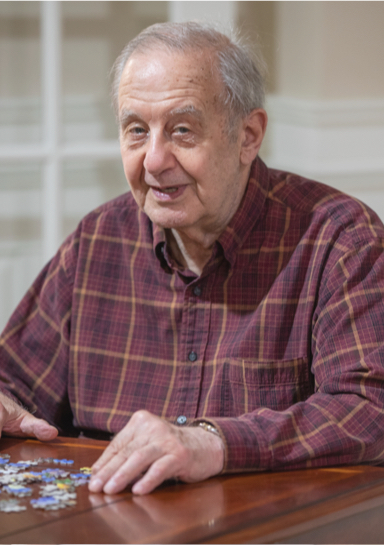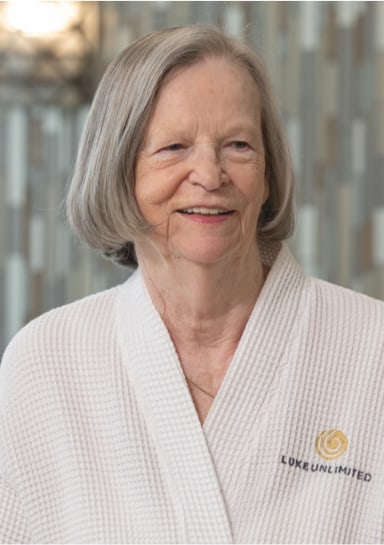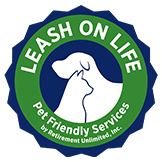Key Takeaways
- Caregiver burnout happens in 3 predictable stages, from initial enthusiasm to complete exhaustion
- Early warning signs include feeling overwhelmed, physical fatigue, and growing resentment
- Recovery involves practical self-care, building support networks, and considering respite care options
- Professional senior living communities can provide specialized care while giving caregivers much-needed relief
Caring for a loved one can feel rewarding at first, but many family caregivers find themselves struggling as time goes on. You might notice your energy dropping, your patience wearing thin, or your own health taking a backseat to your loved one’s needs. Whether you’re supporting someone who shows signs they need additional help or you’re considering options like assisted living services, understanding burnout can guide your decisions.
Caregiver burnout typically unfolds in 3 distinct stages: the honeymoon period with high hopes, growing challenges with mounting pressure, and complete exhaustion that affects every aspect of your life. Understanding these stages helps you recognize where you are in the process, so you can take action and seek support, such as respite care services.
Understanding Caregiver Burnout and Its Impact
What Is Caregiver Burnout?
Caregiver burnout is a state of physical, emotional, and mental exhaustion that develops when you’ve been providing care for an extended period without adequate support or rest. It’s different from regular tiredness because it affects your ability to function in daily life. You might feel trapped, resentful, or completely drained even after getting sleep.
This condition doesn’t happen overnight. It builds gradually as caregiving demands increase and your personal resources become depleted. Many family members don’t recognize burnout until it significantly impacts their health and relationships.
Common Risk Factors for Burnout
Several factors can increase your risk of experiencing caregiver burnout. Providing care for someone with memory care needs, managing complex medical requirements, or handling all caregiving duties alone puts extra stress on your shoulders.
Other risk factors include having limited financial resources, lacking family support, or trying to balance caregiving with work responsibilities. If you’re caring for someone whose condition is getting worse over time, the emotional toll can be particularly heavy.
Why Recognizing the Stages Matters
Understanding the progression of caregiver burnout helps you take action at the right time. Early intervention can prevent more serious physical and emotional consequences down the road. It also helps you make informed decisions about assisted living or other care options.
Recognizing these stages also validates your experience. Many caregivers feel guilty about struggling or think they should be able to handle everything alone. Knowing that burnout follows predictable patterns can help you see that your feelings are normal and manageable.
Stage 1: The Honeymoon Period and Early Warning Signs
High Hopes and Initial Enthusiasm
The first stage of caregiver burnout often begins with genuine enthusiasm and commitment. You feel ready to take on the challenge of caring for your loved one. There’s often a sense of purpose and satisfaction in being able to help someone you care about.
During this phase, you might feel energized by the role and confident in your abilities. Many caregivers experience a strong emotional connection to their caregiving duties. You may even feel honored to be trusted with such an important responsibility.
When Reality Sets In
As weeks and months pass, the daily demands of caregiving start to feel more challenging than expected. Tasks that seemed manageable at first begin to take longer or require more energy. You might notice that caregiving takes up more of your day than you originally planned.
The learning curve can be steep, especially when dealing with medical equipment, medication schedules, or behavioral changes in your loved one. What felt straightforward initially may become more complex as you encounter new situations and challenges.
First Signs of Stress and Fatigue
Early warning signs of burnout include feeling tired more often, even after a good night’s sleep. You might notice that you’re becoming more irritable with family members or friends. Small problems that wouldn’t have bothered you before start to feel overwhelming.
Physical symptoms can include headaches, changes in appetite, or trouble sleeping soundly. You may also find yourself canceling social activities or avoiding activities you used to enjoy. These early signs are your body and mind’s way of telling you that the stress is building up.
Stage 2: Growing Challenges and Mounting Pressure
Feeling Overwhelmed by Daily Tasks
In the second stage, daily caregiving tasks begin to feel like an endless cycle. You might feel like you’re constantly behind or struggling to keep up with everything that needs to be done. The routine that once felt manageable now feels overwhelming and never-ending.
Simple decisions can become difficult when you’re operating under constant stress. You may find yourself spending more time on tasks that used to be quick and easy. The mental load of keeping track of appointments, medications, and care needs weighs heavily on your mind.
Physical and Emotional Symptoms to Watch For
Stage 2 burnout brings more noticeable physical and emotional symptoms. You might experience persistent fatigue that doesn’t improve with rest, frequent illness, or chronic aches and pains. Your emotional responses may become more intense or unpredictable.
Common emotional symptoms include:
- Feeling resentful toward your loved one or other family members
- Guilt about your caregiving abilities or negative feelings
- Anxiety about your loved one’s condition or your own health
- Sadness or depression that affects your daily mood
Conflicts with Family and Healthcare Providers
As stress increases, relationships with family members and healthcare providers may become strained. You might feel like others don’t understand what you’re going through or aren’t contributing enough to your loved one’s care. These tensions can create additional stress in an already challenging situation.
Communication problems often arise when everyone feels overwhelmed and emotions run high. You may find yourself having disagreements about care decisions or feeling unsupported by people who used to be helpful.

Stage 3: Complete Exhaustion
Severe Burnout Symptoms
The third stage represents the most serious level of caregiver burnout. You may feel completely depleted and unable to cope with daily caregiving tasks. Physical symptoms can include chronic illness, significant weight changes, or persistent pain that interferes with your ability to function.
At this stage, many caregivers feel emotionally numb or detached from their loved one. The caring feelings that motivated you initially may be replaced by going through the motions without emotional connection. This emotional withdrawal is a protective mechanism, but it can be distressing to experience.
What Is Compassion Fatigue?
Compassion fatigue is the emotional exhaustion that comes from caring for someone who is suffering or struggling. It’s a natural response to prolonged exposure to stress and emotional pain. You might find it harder to empathize with your loved one or feel emotionally distant from their needs.
This condition doesn’t mean you’ve stopped loving your family member. It’s a sign that your emotional resources are depleted and need replenishing. Compassion fatigue can affect your ability to make caring decisions and maintain the quality of care your loved one deserves.
Impact on Care Quality and Relationships
When burnout reaches this stage, the quality of care you can provide may decline. You might forget important tasks, make mistakes with medications, or feel less patient during daily interactions. These changes can create safety concerns for your loved one and additional guilt for you.
Relationships with family and friends often suffer significantly at this stage. You may withdraw from social connections or feel like others can’t understand your experience. The isolation that results can make recovery more difficult and increase feelings of despair.
Recovery Strategies and Building Support
Practical Self-Care Steps
Recovery from caregiver burnout starts with taking care of your own basic needs. This means getting adequate sleep, eating regular meals, and staying hydrated throughout the day. Even small steps toward self-care can help you start feeling more like yourself again.
Physical activity, even just a short walk around the block, can help reduce stress and improve your mood. Taking time for activities you enjoy, whether it’s reading, listening to music, or talking to a friend, helps restore your emotional balance.
Finding Emotional and Social Support
Connecting with other caregivers who understand your situation can provide valuable emotional support. Many communities offer caregiver support groups where you can share experiences and learn from others facing similar challenges. Online support groups can also be helpful if you can’t attend in-person meetings.
Don’t hesitate to reach out to friends and family members who can offer emotional support or practical help. Sometimes people want to help but don’t know what you need. Being specific about how others can support you makes it easier for them to provide meaningful assistance.
Taking Breaks with Respite Care
Respite care provides temporary relief so you can take breaks from caregiving responsibilities. This might involve having a professional caregiver come to your home for a few hours or having your loved one stay in a care community for a short period. These breaks are important for your physical and mental health.
Many caregivers feel guilty about taking time away from their loved one, but respite care benefits everyone involved. When you’re rested and recharged, you can provide better care and be more present during your interactions.
When to Consider Professional Help
If you’re experiencing symptoms of depression, anxiety, or other mental health concerns, talking to a counselor or therapist can be helpful. Professional support can help you develop coping strategies and work through the complex emotions that come with caregiving.
Consider seeking professional help if you’re having thoughts of harming yourself or your loved one, if you’re unable to function in daily life, or if you’re turning to alcohol or other substances to cope with stress. These are signs that you need immediate support.
Exploring Care Options for Your Loved One
How Assisted Living Can Help
Assisted living communities provide professional care and support while maintaining your loved one’s independence and dignity. These communities offer help with daily activities like bathing, dressing, and medication management while providing social opportunities and engaging activities.
When you choose assisted living, you’re not giving up your role as a caring family member. Instead, you’re ensuring your loved one receives professional care while you focus on being a son, daughter, or spouse rather than a full-time caregiver.
Memory Care for Specialized Needs
Memory care communities specialize in caring for people with Alzheimer’s disease and other forms of dementia. These communities provide structured environments with trained staff who understand the unique challenges of memory-related conditions.
Memory care offers specialized programming, secure environments, and 24-hour supervision that can be difficult to provide at home. This level of care can give you peace of mind while providing your loved one with appropriate stimulation and social interaction.
Making the Right Choice for Your Family
Choosing the right care option depends on your loved one’s specific needs, your family’s situation, and your available resources. Take time to visit different communities, ask questions, and involve your loved one in the decision-making process when possible.
Remember that choosing professional care doesn’t mean you’ve failed as a caregiver. It means you’re making a thoughtful decision to provide the appropriate level of care while protecting your own health and well-being.
Moving Forward with Hope and Balance
Recognizing You’re Not Alone
Millions of family caregivers experience similar challenges and emotions. Your struggles with caregiving don’t reflect your love for your family member or your abilities as a person. Caregiver burnout is a common response to an incredibly demanding situation.
Many families find that acknowledging the challenges of caregiving and seeking appropriate support actually strengthens their relationships and improves outcomes for everyone involved. You deserve support and care just as much as your loved one does.
Creating a Sustainable Care Plan
A sustainable care plan recognizes that caregiving is often a long-term commitment that requires ongoing adjustments. This might involve combining family caregiving with professional services, utilizing respite care, or transitioning to a care community when appropriate.
The goal is to create a plan that meets your loved one’s needs while preserving your own health and well-being. This balanced approach benefits everyone and helps maintain the quality of care over time.
Finding Quality Senior Living Communities
When considering senior living options, look for communities that prioritize resident well-being, offer appropriate levels of care, and create welcoming environments for families. At Aarondale, we understand the challenges families face when making care decisions.
Our community offers independent living, assisted living, memory care, and respite care services with luxury amenities and personalized support. We believe that quality care helps both residents and their families thrive, and we’re committed to supporting you through every step of this journey.
If you’re experiencing caregiver burnout or considering care options for your loved one, we invite you to schedule a tour of our community. Contact us today to learn how we can support your family and help you find the balance you deserve.


